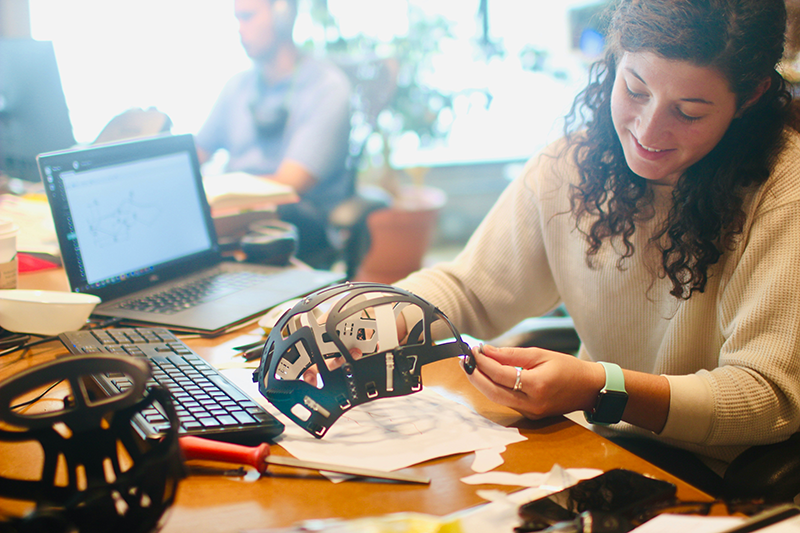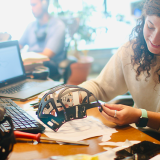
Darba apstākļi un ilgtspējīgs darbs
Darba apstākļi un ilgtspējīgs darbs ir viena no sešām galvenajām darbībām Eurofound darba programmā 2021.–2024. gadam. Eurofound turpinās darboties kā kompetences centrs, lai uzraudzītu un analizētu norises šajā jomā, tostarp to, kā Covid-19 krīze ir ietekmējusi darba apstākļus un darba kvalitāti, kā arī praksi darbavietā.
Eurofound periodā no 2021. gada līdz 2024. gadam sniegs svarīgu ieskatu par problēmām un prognozēm, kas saistītas ar darba apstākļiem un ilgtspējīgu darbu ES. Pamatojoties uz jau sen uzkrātām zināšanām šajā jomā, Eurofound aplūkos tendences un progresu laika gaitā un noteiks jaunas problēmas saistībā ar darba apstākļiem un darba kvalitāti. Analīze aptvers dažādas valstis, nozares, profesijas un darbinieku grupas tādos jautājumos kā darba organizācijaun tāldarbs, darba laiks, darba un privātās dzīves līdzsvars, vienlīdzīga attieksme, veselība un labklājība darbavietā, prasmes un apmācība, ienākumi un izredzes un apmierinātība ar darbu. Īpaša uzmanība tiks pievērsta nestandarta nodarbinātības veidiem , jo īpaši pašnodarbinātībai.
Ņemot vērā ES demogrāfiskās problēmas saistībā ar sabiedrības novecošanu un pieaugošo darba dzīves daudzveidību, Eurofound turpinās pētīt faktorus, kas ļauj lielākam skaitam darbinieku ilgāk palikt darba tirgū. Tā arī pievērsīs uzmanību darba kvalitātes uzlabošanai kā lielākas līdzdalības darba tirgū un lielākas darbinieku motivācijas veicinātājai, sekmējot ilgtspējīgu darbu visa mūža garumā.
Saiknes starp darbu un veselību tiek pētītas ciešā sadarbībā ar Eiropas Darba drošības un veselības aizsardzības aģentūru (EU-OSHA). Eurofound mērķis ir turpināt sadarbību ar Starptautisko Darba organizāciju (SDO) jautājumos par darba nākotni un darba apstākļiem pasaules līmenī.
“Kopumā tā ir laba ziņa, jo darba apstākļi Eiropas Savienībā uzlabojas, lai arī lēni, tomēr tas, ka tas ne vienmēr attiecas uz visām darbinieku grupām, rada bažas. Tas lielā mērā ir atkarīgs no tā, kurā nozarē jūs strādājat, un, godīgi sakot, arī no iegūtās izglītības, kā arī no tā, vai esat vīrietis vai sieviete.”
Barbara Gerstenberger, Darba dzīves nodaļas vadītāja
































